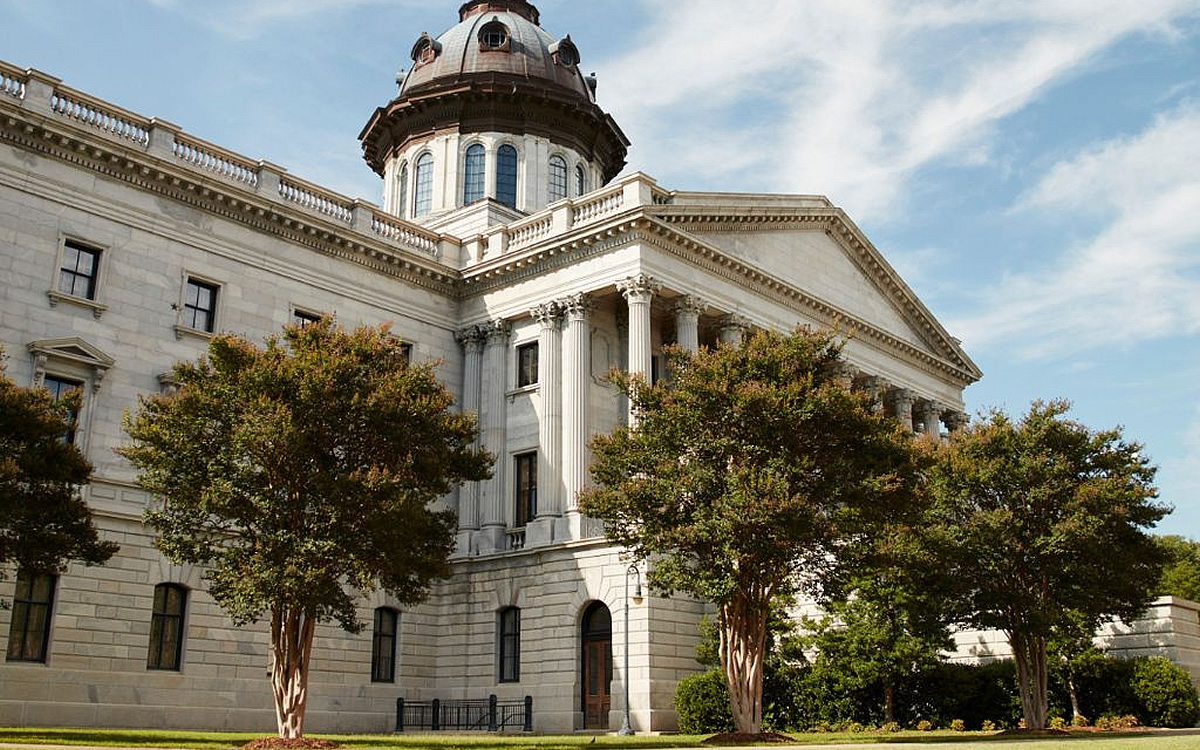
By Andy Brack, editor and publisher | With Americans burning up Zoom to conduct business meetings online and keep up with what’s happening in this year of an invisible enemy, you’ve got to wonder why state lawmakers mostly wasted the 2020 legislative session.
 By cutting class for two months due to the novel coronavirus, they missed big opportunities to deal with Santee Cooper’s future, state pension shortfalls, teacher pay, educational improvement, the problems of vaping, gun loopholes, opioids and tax reform. The list drags on.
By cutting class for two months due to the novel coronavirus, they missed big opportunities to deal with Santee Cooper’s future, state pension shortfalls, teacher pay, educational improvement, the problems of vaping, gun loopholes, opioids and tax reform. The list drags on.
Now we hear they’ll be back May 12, but the likelihood of much really getting done besides passing a budget roiled by coronavirus costs is next to nothing.
It shouldn’t have been this way. Technology offers a safe, transparent meeting platform that can be monitored by any citizen if aired on SCETV, just like regular meetings are.
In mid-March, members of the state House of Representatives went on an annual short furlough after passing a $9.8 billion state budget that included $1.8 billion in surpluses. The state Senate stopped gathering about the same time. Other than an April 8 meeting that failed to accomplish much of anything, they stayed home, thanks to a March 23 coronavirus executive order keeping three or more people from meeting at one time.
So what’s a legislature to do? It could have adapted technologically and plodded on. Surprised that it didn’t? In South Carolina?
Our state constitution outlines where the legislature is supposed to meet: “Each body shall sit in session at the State Capitol Building in the City of Columbia and may provide for meetings during the legislative session as it shall consider appropriate.”
But back in the late 1990s, lawmakers bypassed that constitutional requirement by meeting in the old Carolina Inn across the street from the capitol as it was undergoing a long renovation.
Former state Senate Clerk Frank Caggiano recalls there was no constitutional work-around to move across the street temporarily.
“We just did it,” he said. “If anything was passed, I am unaware of it.” And he should know because he was part of the management team of the project, which he said lasted 777 days.
“I don’t know what we could have passed, other than another constitutional amendment. I don’t believe the General Assembly could have passed anything to meet in another physical location.”
The constitution, in fact, includes a mechanism that provides a work-around for meeting locations: “If the casualties of war or contagious disease render it unsafe to meet at the seat of government, the Governor, by proclamation, may appoint a more secure and convenient place of meeting.”
Did you see that part about “contagious disease?” In a 2020 context, one could easily read the constitution as permitting safe meetings through the use of technology never envisioned when the state constitution was originally written back in 1895.
Or as Caggiano suggested, “Not to be cutesy about it, but if the technology and the equipment that hosted the [online] meeting were located physically in the Statehouse, one could argue you might be technically meeting the terms of the constitution.”
Bottom line: State lawmakers may not have to meet physically at the Statehouse to conduct business. But they obviously think they do, which conjures images of lots of stuffed shirts flanked by face masks and plastic gloves as the House and Senate chambers turn into something that looks like a bank robbers’ convention.
Senate President Harvey Peeler. R-Cherokee, and House Speaker Jay Lucas, R-Darlington, announced Thursday, “While the pandemic did not permit us to continue to meet as normal, the job of this legislature will not be left unfinished. Now, more than ever, the needs of the citizens of this state must be addressed and met.
“While the state pursues reopening, we must stand poised to get back to work. In order to do our work in a timely manner, it is imperative we work together as fellow legislators and fellow South Carolinians. Leadership in both chambers recognizes the importance of this partnership.”
Hold onto your hats. Let’s hope they don’t rush to judgment on two month’s of work set aside when it shouldn’t have been.
- Have a comment? Send to: feedback@statehousereport.com.


